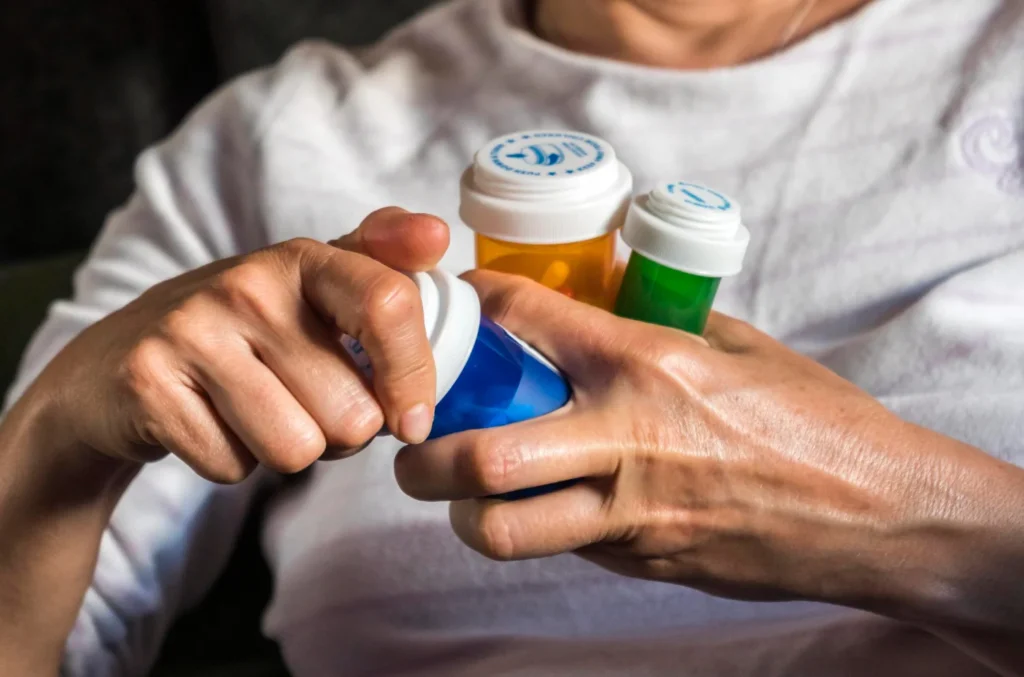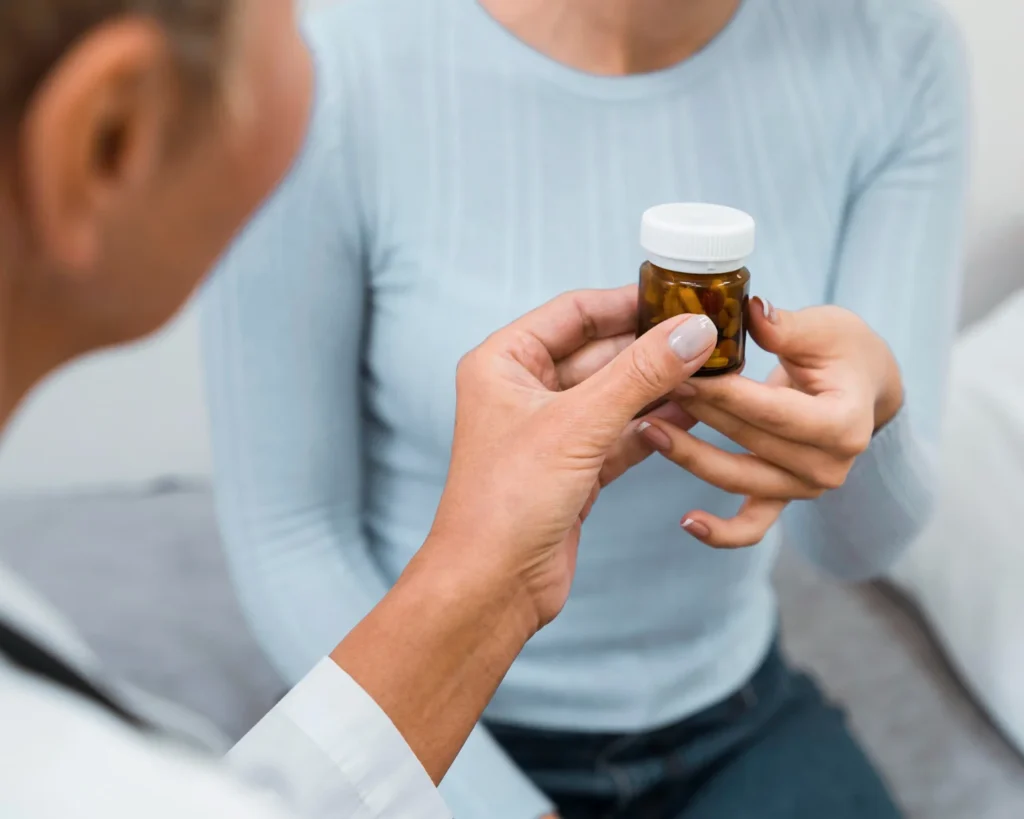Table of Contents
Toggle- What Is Medication Adherence and Why Is It Important?
- Common Reasons Patients Do Not Take Their Medications
- 1. Educate Patients About Their Medication
- 2. Build Trust Through Relationships
- 3. Make Communication Personal and Ongoing
- 4. Simplify the Medication Regimen
- 5. Use Tools and Reminders
- 6. Engage the Whole Pharmacy Team
- 7. Coordinate With Prescribers
- 8. Offer Medication Synchronization
- 9. Provide Medication Therapy Management (MTM)
- Conclusion
Medication only works if it is taken correctly. Yet, across the healthcare system, a large number of patients do not follow their medication regimens as prescribed. This issue, known as medication non-adherence, affects millions of people and leads to poor health outcomes, preventable hospitalizations, and higher medical costs.
Improving medication adherence is not just about reminding people to take their pills. It requires thoughtful education, communication, and support from the entire care team, especially from pharmacists who see patients regularly and have the trust of their communities.
In this guide, we will explore practical and effective ways to improve medication adherence. Whether you are a pharmacist, pharmacy technician, nurse, or care coordinator, these strategies can help you guide your patients toward better health, one dose at a time.
What Is Medication Adherence and Why Is It Important?
Medication adherence means taking medications exactly as prescribed by a healthcare provider. This includes the right dose, at the right time, for the right duration.
When patients skip doses, stop taking their medications early, or don’t fill prescriptions at all, the result is often a worsening of their condition. This is especially true for chronic illnesses like diabetes, heart disease, asthma, and depression, where daily medication use is essential.
Poor adherence can lead to:
- Higher hospital admission rates
- More frequent emergency room visits
- Reduced effectiveness of treatments
- Poor quality of life
- Increased costs for patients and healthcare systems
The good news is that small changes in pharmacy practice and patient communication can make a big difference.

Common Reasons Patients Do Not Take Their Medications
Understanding the root causes of non-adherence is the first step to addressing it. Here are some of the most common reasons patients do not take their medications as prescribed:
- They forget to take them
- They do not understand what the medication is for
- They are afraid of side effects
- They feel better and think they no longer need it
- They feel no improvement and believe the medicine is not working
- The cost is too high
- The regimen is too complex or confusing
- They mistrust the healthcare system
- They have trouble getting to the pharmacy
Now let’s explore how to tackle these issues one by one.
1. Educate Patients About Their Medication
Clear, simple education is one of the best ways to improve adherence. Patients need to understand why they are taking each medication, how it works, and what to expect.
When a patient picks up a new prescription, take a moment to explain:
- What the medication is treating
- How it helps the body
- How long it may take to work
- Common side effects and what to do about them
- Why it is important to take it regularly, even if they feel fine
Use language that is easy to understand. Avoid technical terms when possible. Ask patients if they have any questions and encourage them to call or stop by if they need help later.
2. Build Trust Through Relationships
Trust is a powerful tool in healthcare. Patients are more likely to follow advice from someone they know and feel comfortable with.
Pharmacists and their teams often see patients more regularly than doctors do. Use this time to build a friendly, respectful relationship. Ask how they are doing, show interest in their lives, and create an environment where patients feel safe to ask questions or share concerns.
A patient who feels seen and heard is more likely to return, refill prescriptions, and stay on track.
3. Make Communication Personal and Ongoing
Medication adherence is not a one-time conversation. It requires ongoing support and follow-up.
Use every refill pickup as a chance to check in:
- “How are you feeling?”
- “Any side effects with this medication?”
- “Do you have questions about your other prescriptions?”
If your pharmacy offers text messages or phone calls, use them to remind patients about upcoming refills or to follow up on new therapies. Keep the tone friendly and supportive, not pushy.
Sometimes, a simple reminder or a check-in can prompt a patient to stay on course.
4. Simplify the Medication Regimen
One common reason for poor adherence is complexity. Some patients take multiple medications at different times throughout the day, which can become confusing and hard to manage.
Here are ways to simplify:
- Ask the prescriber if the patient can switch to once-daily dosing
- Use combination pills if possible
- Offer blister packs or pre-sorted pill packs
- Group medications into morning and evening routines
- Create a printed medication schedule for the patient
By making the routine easier, patients are more likely to stick with it.
5. Use Tools and Reminders
Some patients need help remembering to take their medications. Others benefit from tools that help them stay organized.
Recommend solutions like:
- Daily pill boxes (with morning, noon, and night sections)
- Smartphone reminder apps
- Calendar alerts
- Notes or checklists near the fridge or bathroom mirror
- Automatic refill and pickup services at the pharmacy
Ask the patient about their lifestyle and preferences. A tech-savvy person might love an app, while someone else may prefer a paper chart on the wall.
6. Engage the Whole Pharmacy Team
Improving medication adherence is a team effort. Pharmacy technicians, clerks, and support staff can all play a role in helping patients stay on track.
Train your team to:
- Ask simple questions when handing out prescriptions
- Listen for signs of confusion or concern
- Alert the pharmacist when they notice a patient skipping refills
- Offer help scheduling follow-up calls or medication therapy reviews
When everyone in the pharmacy works together with the same goal, patient care improves.
7. Coordinate With Prescribers
A strong relationship between the pharmacy and prescriber is key. When a pharmacist notices a pattern of non-adherence or sees that a medication is not being refilled, they can contact the doctor to discuss it.
This kind of coordination shows the patient that their care team is working together. It also helps resolve issues like side effects, confusion about the prescription, or even finding a more affordable option.
Building a partnership with local providers helps everyone stay informed and focused on the patient’s success.
8. Offer Medication Synchronization
Medication synchronization is a service that allows patients to pick up all of their medications on the same day each month. This reduces the number of trips to the pharmacy and ensures they never run out of essential medications.
This service also benefits the pharmacy by creating a more predictable workflow and giving pharmacists more time for counseling sessions or medication reviews.
Many pharmacies offer synchronization programs at no extra cost. Enroll patients who take multiple medications and explain how it works. Most will be grateful for the simplicity.
9. Provide Medication Therapy Management (MTM)
Medication therapy management is a valuable tool to review a patient’s full medication list, check for interactions, and offer education and support.
These one-on-one sessions allow the pharmacist to:
- Ask questions about adherence
- Explain how medications work together
- Identify barriers or misunderstandings
- Adjust therapy with the prescriber’s approval
- Set goals and track progress
MTM sessions can be scheduled in advance and offer a more private space to have important conversations.
Many health plans support MTM services and reimburse pharmacies for offering them. This is not only good for patients but also a smart business strategy for independent pharmacies.

Conclusion
Medication adherence is not just about remembering to take pills. It’s about helping people feel confident in their treatment, understand their health, and stay connected to the care they need. When patients miss doses or stop treatment early, the results can be serious. But with the right support, most adherence issues can be prevented.
Independent pharmacies like Care RX play a powerful role in this process. With strong patient relationships, personalized service, and trusted advice, pharmacies are in a unique position to support better outcomes every day.
At Care RX, we believe every patient deserves guidance they can trust. That’s why we offer dedicated Medication Adherence Support, designed to make it easier for people to stay on track with their prescriptions. From refill reminders and medication synchronization to one-on-one counseling and customized packaging, our team is here to help every step of the way.






